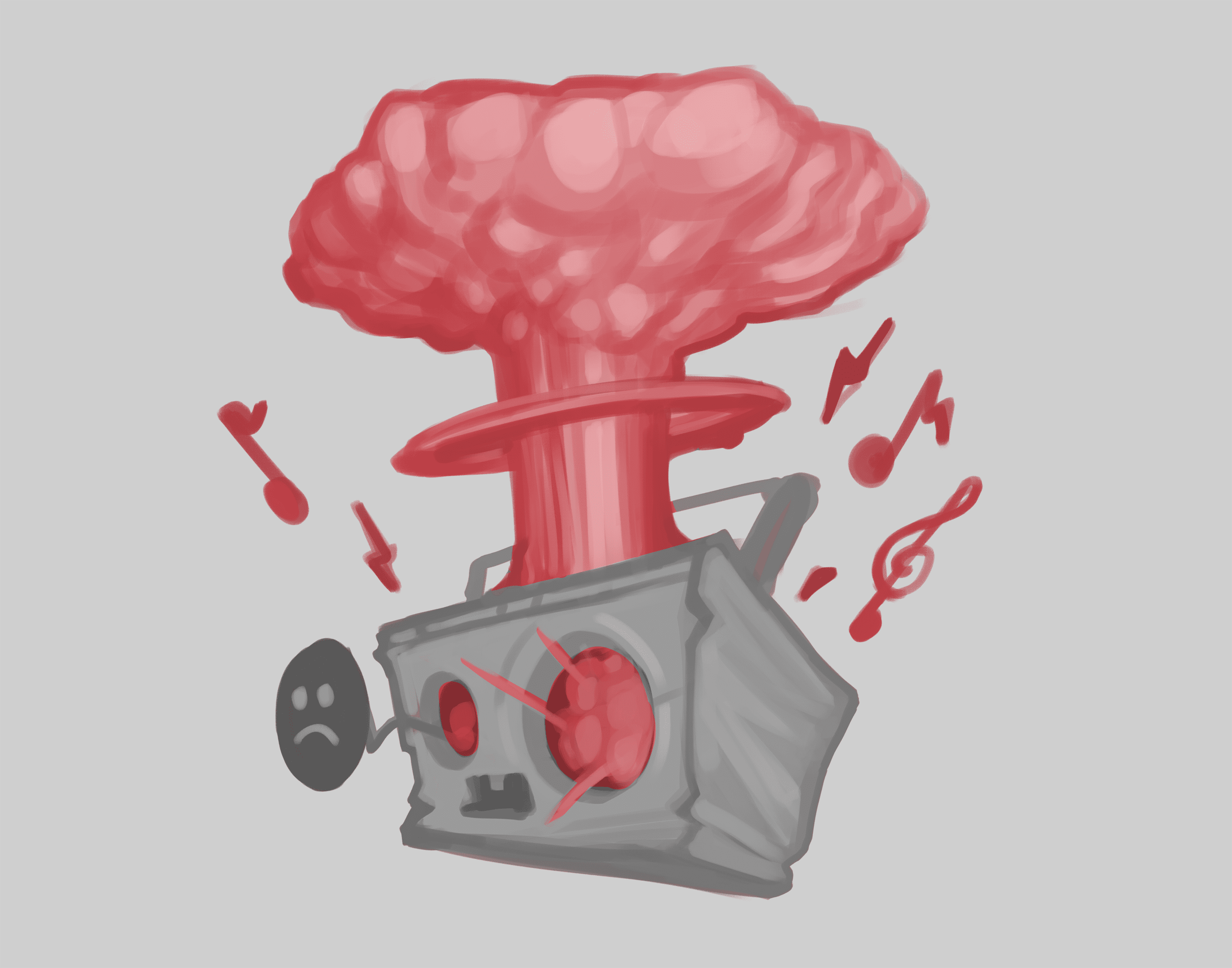Drugs, murder, objectification: these are the tools of the trade for many rappers and rock n’ rollers of our culture.
It should not be surprising when, after listening to certain music, women feel more self-conscious, men feel more materialistic and everyone is more open to violence.
We are right to be skeptical of broad criticisms of rap. They might be rooted in racism or eurocentrism, as has happened in the past. But these criticisms transcend past one genre of music.
All aggressive music, all music that illustrates misogyny or materialism will affect you. Rap and rock tend to carry these themes.
Unfortunately, the pious, religious right use and oversimplify these facts. They condemn rock as the “Devil’s Music.” Bill O’Reilly says rap steals children away from religion, even as clergy scandals should scare any sensible parent away.
Music moves us to dance, to tap, to jive, to drum. It can make us cheerful, pull at our heartstrings and put us in drive. It activates parts of the brain associated with food, sex and drugs. Music therapy is the application of music to treat depression, reduce stress, and other usefulnesses. But if music can help us with self-esteem or relax us, couldn’t it also harm us?
Studies heavily suggest that fact.
In one study, 46 boys were divided into three groups. One group would sit in silence. Another group would watch non-violent music videos. The last group would watch violent music videos.
Those who watched violent music videos were more accepting of violence. They also reported higher levels of willingness to be violent.
Sociologist Simon Frith argues music might not necessarily make the listener more hostile, but rather make the listener excited about the thought of being in a negative emotional state. Thus, music genres associated with negative themes may influence the mind to perceive aggressive emotions as an entertaining stimulation, rather than cause an observable change in behavior. This could explain why the boys reported being more eager for violence after the aggressive music. Frith was knighted for his contributions to higher education in 2017.
But Frith’s claims don’t hold water when compared to other studies. Not only do those in studies report people being more accepting and willing to commit aggressive acts, but they commit more aggressive acts.
It is a matter of debate whether long-term exposure to aggressive music can in turn make you a more aggressive person. But it stands to reason if you surround yourself with music that provides a roadmap for violence and objectification; you might just find yourself walking there.
Interestingly, women who listened to hip-hop music reported increased self-objectification, responding more to “I am my body.” Which makes sense if you’ve ever seen “Anaconda” by Nicki Minaj. Rock and hip-hop share a disturbing pastime of degrading women.
I’m well aware no matter what I say we’re still going to listen to our Swedish death metal, gangster rap or whatever you listen to. I do too.
And we must acknowledge some music has a reason to be violent. Much of rap reflects and criticizes the conditions minorities are subjected to. Childish Gambino’s “This is America” music video is particularly violent but sends an important message.



